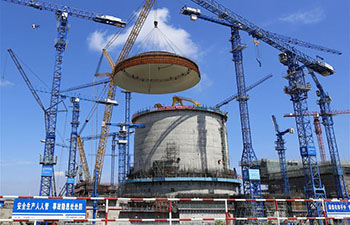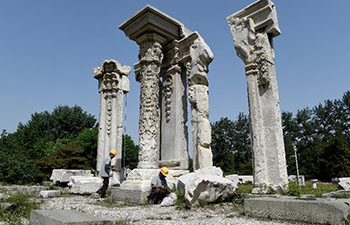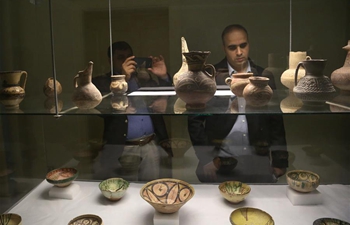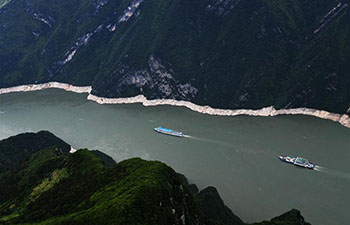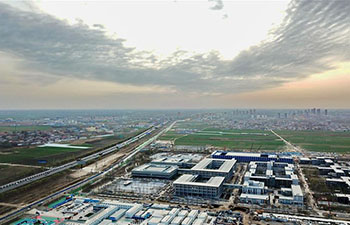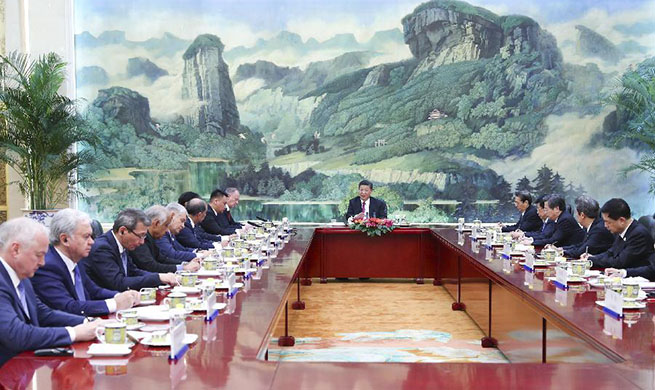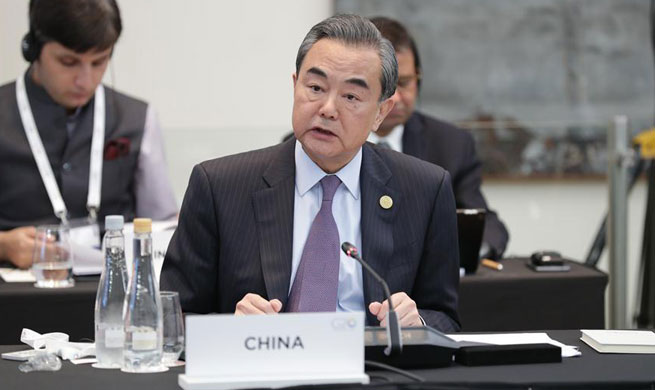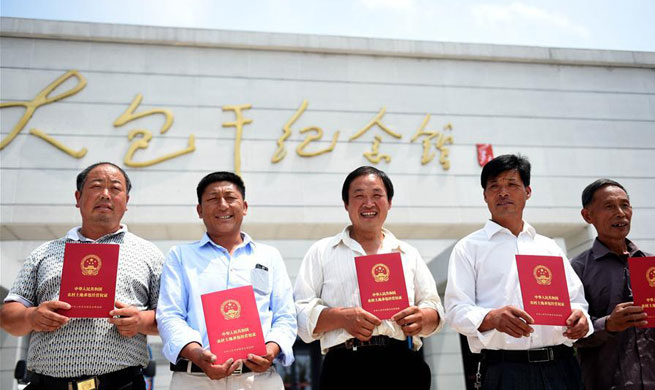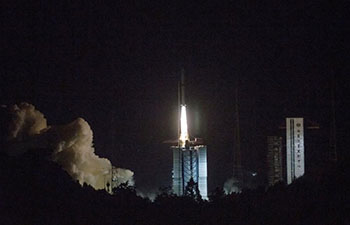BAGHDAD, May 23 (Xinhua) -- The prominent Shiite cleric Moqtada al-Sadr, whose al-Sa'iroon political coalition won most seats in the country's May 12 parliamentary elections, called on Wednesday the international community to help Iraq leave the "tunnel of sectarianism."
A statement by his office said Sadr met with the United Nations special envoy to Iraq Jan Kubis, and the Shiite leader asserted that Iraq needs support from the international community and the UN organization "to get out of the tunnel of sectarianism and to prevent regional interference in the Iraqi elections file."
Sadr confirmed the need for support in humanitarian and service fields in the liberated areas, particularly in Mosul, according to the statement.
Sadr and Kubis discussed the latest developments after the elections and the formation of the next government, it said.
The statement quoted Kubis as saying that "my visit to Sadr came before preparing the special report about Iraq, which it is hoped to be presented later to the United Nations."
Kubis confirmed the readiness of the United Nations to provide assistance needed by Iraq, and expressed his hope that the understandings and discussions would lead to the formation of a national government that supports stability in the country, according to the statement.
Early on Saturday, the electoral commission announced the final results of the parliamentary elections, which showed that the al-Sa'iroon Coalition, led by Shiite cleric Moqtada al-Sadr, was the front-runner and won 54 seats in the upcoming 329-seat parliament.
The results showed that al-Fath Coalition, led by Hadi al-Ameri, came in the second place with 47 seats, while the al-Nasr Coalition, led by current Prime Minister Haider al-Abadi, came in third with 42 seats. The State of Law Coalition, headed by Vice President and former Prime Minister Nuri al-Maliki, garnered 25 seats.
The two major Kurdish parties, Kurdistan Democratic Party (KDP), headed by Masoud Barzani, and Patriotic Union of Kurdistan (PUK) took the lead in the Kurdish region and in the ethnically-mixed province of Kirkuk with 25 seats for the KDP and 18 for the PUK, according to IHEC figures.
Since the announcement of the elections' results, the winning coalitions are busy with tough negotiations to form the largest alliance that will be announced in the first parliament session, and then the largest alliance will designate new prime minster who will form a cabinet that would rule the country in the next four years.
On May 12, millions of Iraqis went to 8,959 polling centers across the country to vote for their parliamentary representatives in the first general election after Iraq's historic victory over the Islamic State (IS) group last December.




